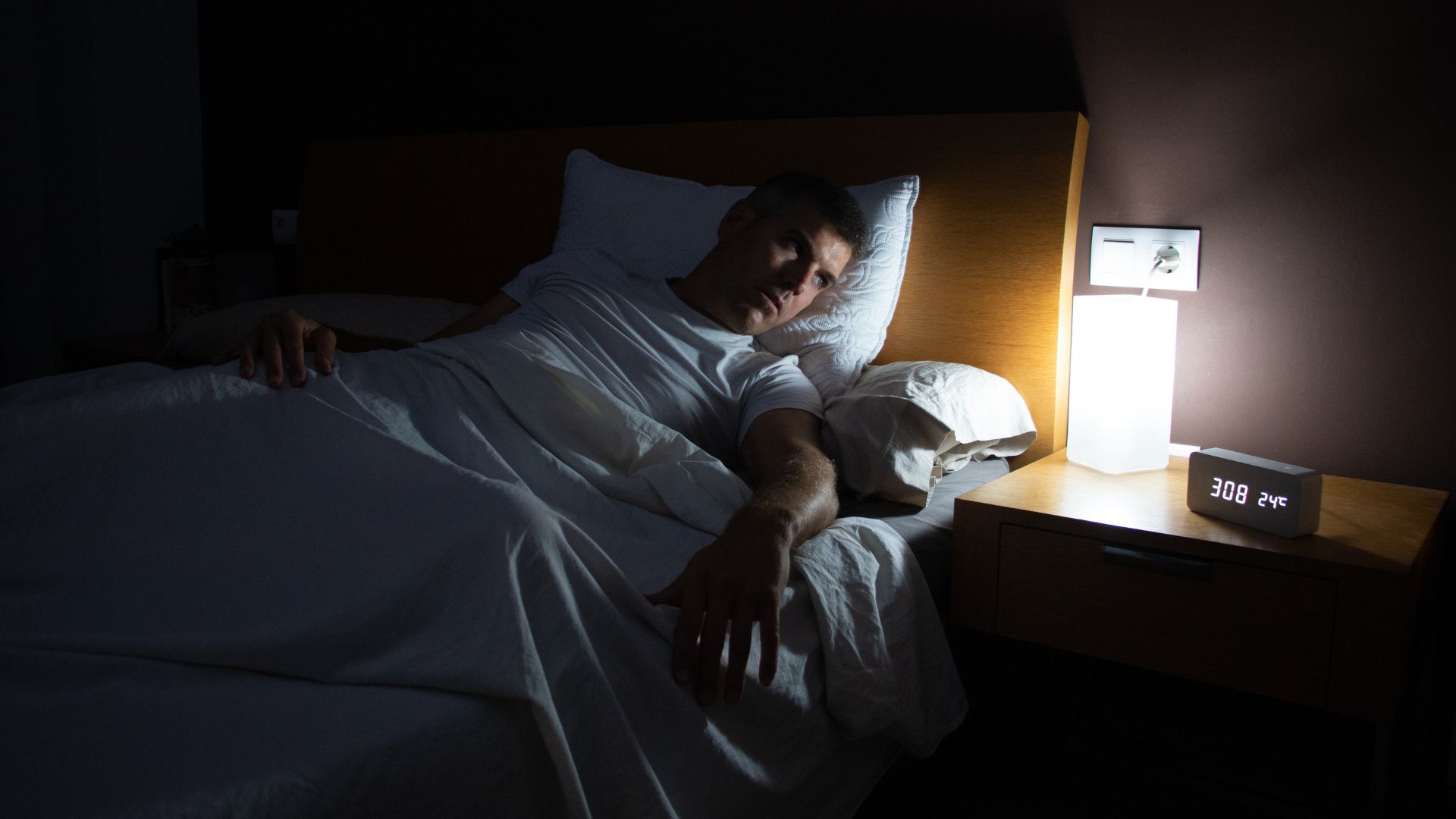
People who have irregular sleep schedules may have an increased risk of dying from cancer and heart disease, compared with people who have regular sleep schedules, according to a seven-year study of middle-age and older adults.
Scientists have previously found that a lack of sleep may increase the risk of dying from any cause, but it was unclear whether irregular sleep schedules similarly affected mortality rates. Now, new research, which was posted April 17 on the preprint database medRxiv and has yet to be peer-reviewed, suggests they do.
"To my knowledge, our study is the largest to look at how sleep irregularity affects all-cause mortality," or death from any cause, Matthew Pase, an associate professor of psychology at Monash University in Australia and a co-author of the study, told Live Science. "We show that sleep regularity may impact mortality independently of sleep duration."
Pase and his colleagues recruited nearly 90,000 people living in the U.K. to wear movement-tracking devices on their wrists for around a week; the participants ranged from about 40 to 70 years old. By using a statistical model to estimate when people were asleep or awake from the recorded movement data, the researchers calculated a sleep regularity score for each participant, defined as the probability that a person was awake or asleep at the same time between any two consecutive days.
Related: What is sleep hygiene?
One group of participants was scored as having "low sleep regularity," as they had a 41% chance of being asleep or awake at the same time for two days in a row; this put the group in the fifth percentile of sleep scores, overall. Those with "average" sleep regularity, who were in the 50th percentile, had a 61% chance of being asleep at the same time on consecutive days.
Within about seven years of the team collecting this data, 3,010 of the participants died. Those with low sleep regularity scores were 46% more likely to die of any cause within the follow-up period, compared with people with average scores.
Of the people who died, 1,701 died of cancer and 616 died of cardiovascular disease. People with low sleep regularity scores were 33% more likely to die of cancer, and 73% more likely to die of cardiovascular disease, than people with average scores.
(A third group of people with "high" sleep regularity scores had a slightly lower-than-average chance of death, overall, and from cancer and heart disease, specifically, but their risk wasn't significantly different than the "average" group.)
The analysis took into account differences in participants' age, ethnicity, sex, smoking status, diabetes, existing heart conditions and cancer, education level, income, and how long they slept each night, on average.
"Shifts in sleep and wake times can disrupt bodily processes, such as repair of tissues and metabolism, so this may then increase chronic disease risk," Pase said. However, it's also possible that bodily changes that contribute to the development of cancer and cardiovascular disease may have led to the observed differences in sleep regularity, he said.
"Of course, we can't yet confirm whether there's a causal association," he said, meaning based on their data, the team can't determine whether irregular sleep schedules directly drive up rates of deadly disease, or vice versa.
Another limitation of the study is that the researchers relied on only movement data to estimate sleep and wake times, so the team couldn't perfectly differentiate between when people were truly asleep and when they were lying relatively still. "If we could increase the accuracy of our measurements further we could be seeing an even more powerful effect," Pase said.
How can people with inconsistent sleep schedules get back on track? Dr. Johan Meurling, who treats people with sleep disorders, recommends several tips for sleeping regularly, such as setting an alarm clock to wake at the same time on weekdays and weekends; avoiding napping during the day; and not using devices to browse social media, in bed. Exercising during the day but not within the few hours before bedtime and avoiding caffeine after about 3 p.m. can also help, he said.
"The one consistent advice I have for my patients with irregular sleep-wake schedules from weekdays to weekends is to examine where their inherent biological clocks lie," Kin Yuen, a doctor in sleep medicine, wrote in an email to Live Science. Trying to align your schedule with your internal rhythm of being a morning or evening person will help you sleep regularly, she wrote.







